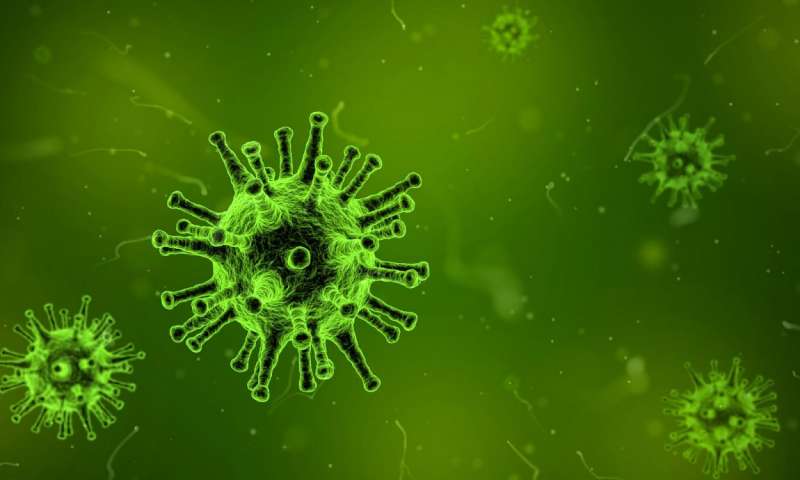The World Health Organization on Friday approved the first COVID-19 vaccine from China in a bid to boost global immunisation drives, as India logged yet another record number of infections that have spilled over into neighbouring countries.
And while many Western countries are starting to reopen as vaccinations gain pace, authorities in Tokyo and other parts of Japan extended virus states of emergency, less than three months before the Olympics.
In Geneva, the WHO approved for emergency use the Sinopharm vaccine, the first fully non-Western vaccine to get the green light, and build up the global arsenal against the virus.
“The number of cases, the number of deaths globally is on the increase,” WHO chief Tedros Adhanom Ghebreyesus told a press conference.
“We will see serious situations like what we see now in India, in Brazil,” he warned.
The WHO has already given emergency use listing to the vaccines being made by Pfizer-BioNTech, Moderna, Johnson and Johnson, and the AstraZeneca jab being produced at separate sites in India and in South Korea.
Listing paves the way for countries worldwide to quickly approve and import a vaccine for distribution.
It also opens the door for the jabs to enter the Covax global vaccine-sharing scheme, which aims to provide equitable access around the world and particularly in poorer countries.
Record cases in India
The Sinopharm vaccine is already in use in 42 territories around the world, fourth behind AstraZeneca (166), Pfizer-BioNTech (94) and Moderna (46), according to an AFP tally.
But top WHO official Mariangela Simao said the Sinopharm approval “has the potential to rapidly accelerate” access to the vaccine in many other countries.
Grappling with the world’s worst surge is India, where record daily cases have seen the country register up to half of all global infections in the past week.
Thursday saw India post 414,000 new cases—another global record—as well as almost 4,000 deaths, according to official data that many experts suspect is a gross underestimate.
The capital New Delhi is among the worst-hit areas, along with West Bengal, which recently completed an eight-phase election that saw mass rallies by Prime Minister Narendra Modi and other politicians—events now partly blamed for the staggering rise in infections.
India’s surge has also been worsened by chronic shortages of hospital beds and oxygen, prompting an outpouring of international aid to the country.
Everest climbers hit
The surge has spilled over to India’s neighbours Bangladesh, Nepal and Sri Lanka, which on Thursday became the latest country to seal its borders with the South Asian giant.
The outbreak has even reached as high as Nepal’s Everest Base Camp, where more than 30 sick climbers have been evacuated from the foot of the world’s highest mountain.
In the last three weeks, Nepal’s daily case trajectory has shot up with two out of five people tested now returning positive.
Japan’s COVID-19 outbreak remains much smaller than in many countries, with around 10,500 deaths.
But its vaccine rollout is moving slowly and more infectious variants are driving fresh waves of contagion, with record case numbers seen in some regions and medics warning that hospitals are under strain.
The pandemic has disrupted test events for the upcoming Olympics, with several postponed, cancelled or moved abroad, although the Diving World Cup and a rowing qualifier went ahead this week in Tokyo with athletes from abroad.
‘Vaccination confidence’
The United States and countries in Europe are in a more buoyant mood concerning vaccine rollouts.
Germany seems to have halted a surge in infections driven by the British variant, its health minister said Friday, cautioning however against lifting restrictions too early.
Greece will reopen private beaches on Saturday and museums next week, as the tourism-dependent country gears up for a May 15 travel restart.
And Britain announced it would loosen its travel restrictions to allow people in England to go on holiday to Portugal and Israel, due to their low infection and high vaccination rates.
The scientific committee overseeing the country’s vaccination programme on Friday recommended that under-40s be offered an alternative to the Oxford-AstraZeneca COVID jab as a way to “increase vaccination confidence”.
Many people have shied away from getting the AstraZeneca vaccine after UK and European regulators recorded a very small number of people developing clots with low blood platelet levels.
The WHO has urged governments to refrain from vaccinating children against COVID-19 until the elderly and at-risk worldwide have received the vaccine.
The plea came after Canada authorised the use of Pfizer vaccine on children, with other rich nations set to follow suit.


